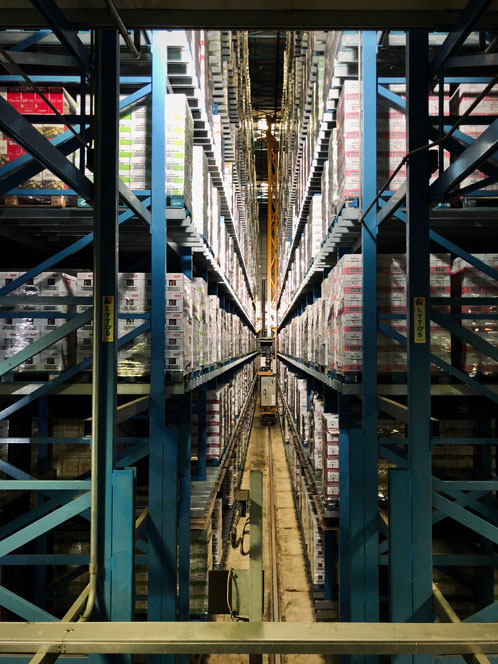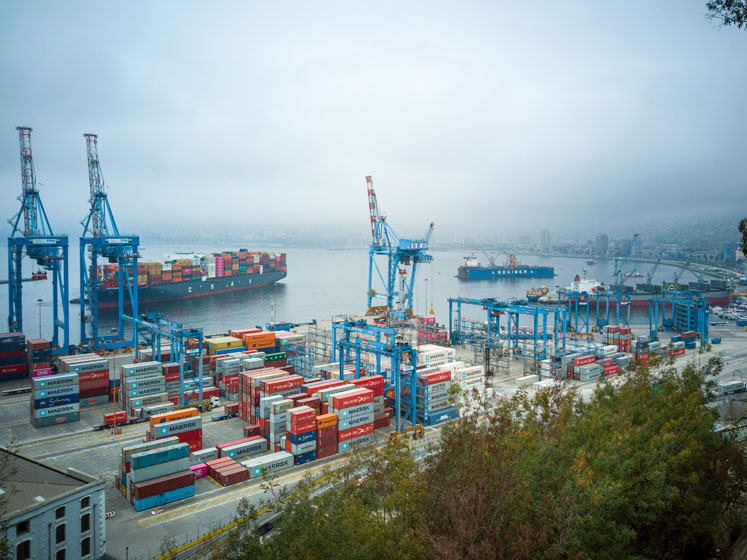Security is an integral part of supply chain management that looks at the risks associated with external suppliers, vendors and others. Supply chain security aims to identify, analyse and mitigate the risks that come as part of working with other organisations.
Working in the manufacturing, engineering and construction sectors, you will be aware of the continued supply chain difficulties being experienced in your industries. Major concerns such as an unstable global economy and post-pandemic recovery mean that businesses face uncertainties. So, making your supply chain as secure as possible should be a high priority.
Securing the supply chain
What can you do to create a secure supply chain? Here are some key points to consider.
Choosing your suppliers: It can pay to build a good relationship with your suppliers. Choosing a supplier based solely on cost could mean poor quality, so it’s important to check the quality of supplies is consistent. Your supplier needs to be reliable; a late delivery could cause delays and let your customers down.
Look at the benefits of having a diversified supply network. It’s important to weigh up the cost of keeping your supply chain closer to home against longer lead times and shipping costs of international sourcing.
When choosing and negotiating with suppliers, do your due diligence before entering into a contract.Consider their value for money, service, reliability and quality. If you can, go and visit suppliers on their premises to ensure they are the right fit for your business.
Risk planning: Supply chain risk management enables businesses of all sizes to take advantage of best practice strategies that mitigate risk and set them up for success. Having increased visibility throughout your supply chain helps to identify risks or potential issues that may arise and can help you to prepare and respond effectively.

This could mean having an alternative supplier identified as a back-up in case your regular supplier lets you down. This ensures that you can guarantee order fulfilment and keep everything running. By adopting a mindset of continuous assessment and improvement, your organisation can mitigate future risks and recover quickly if a disruption occurs.
Communication is key: Communication plays an integral part in supply chain management. This is evident in the construction industry with contractors, subcontractors and suppliers involved at every step.
Without a proper line of communication, clear expectations regarding tasks and the traceability of materials and equipment, projects are likely to be delayed and over budget. Being able to easily communicate with your supply chain makes it easier to regularly audit your suppliers and enables better quality management — with efficiencies minimising waste and keeping costs down.
Cybersecurity and the supply chain
During the last few decades, technology has revolutionised the way we do business, including playing an important role in supply chain management. With pressure to reduce carbon emissions and improve efficiencies, organisations are leaning on technology more than ever before. New technologies such as virtual meeting spaces and digital management systems are being utilised to better manage various supply chains.
However, cybersecurity threats and technology come hand-in-hand. According to a report from Accenture, 40% of cyberattacks are now thought to originate in the extended supply chain. Therefore, it’s essential that organisations implement adequate procedures and policies to mitigate cyberthreats.
As technology evolves, so must an organisation’s cybersecurity, which requires regular review of your cyber policies and procedures to ensure they remain effective. With outside suppliers also heavily leaning on technology, organisations must ensure they have checks and systems in place to protect their business from technologies used by outside suppliers.
What are the consequences of not having a secure supply chain?
Vulnerabilities within a supply chain could lead to unnecessary costs and missing out on business because of extended wait times. Having issues in your supply chain can cause expensive delays and major disruption. A shortage of materials and uncertain delivery schedules can make it difficult to fulfil orders or complete contracts.
From health and safety hazards to unsatisfactory goods, a breach within the system could damage operations. Such problems can lead to unhappy customers and damage the reputation of your business.
Supply chain issues in a post-pandemic world
The COVID-19 pandemic exposed serious vulnerabilities in supply chains worldwide. With many businesses being reliant on interconnected global supply chains, the ripple effect has been significant. A shortage of supplies, changing market demands and an unpredictable workforce all came together and caused production and business operations to grind to a halt.
Businesses now have the challenge and opportunity of proactively making their supply chains more secure. The pandemic has highlighted how businesses need efficient supply chains that not only minimise day-to-day risks but withstand, adapt and recover from major disruptions.

To meet this challenge, businesses need to ensure they identify and manage risks to secure their supply chain and ultimately their business.
Future-ready supply chains must be resilient to change, agile enough to respond quickly to disruptions and sustainable to meet the needs of the planet. As we move to a post-pandemic world, supply chain security and risk management are more critical than ever.
ISO and quality management
One of the most important Standards for supply chain security and management is ISO 9001. This International Standard is designed to help organisations ensure they meet the needs of customers and other stakeholders by having a framework that ensures consistency in quality and in the provision of goods or services that organisations offer.
Having processes in place to reduce risks and provide consistency within your supply chain is an important part of your quality management system. More than one million organisations have adopted ISO 9001 and it is used by a wide range of businesses to continually monitor, manage and improve the quality of their product or service.
An ISO 9001 quality management system can help organisations to streamline processes, reduce errors, use their time more effectively and improve communications. All of this ultimately leads to a more secure supply chain. Becoming ISO 9001 certified can provide a number of benefits, both for your organisation and your customers, including
- increased efficiency
- better decision making
- increased customer satisfaction
- improved record keeping
- improved supplier relationships
- continuous improvement.
